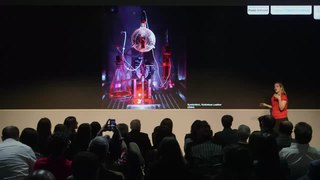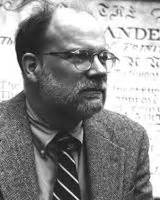A Quote by Paola Antonelli
Designers may be the true intellectuals of the future.
Quote Topics
Related Quotes
Intellectuals love Jefferson and hate markets, and intellectuals write most of the books. Intellectuals often think that they should, for the benefit of mankind, act as fiduciaries for the clods who don't have to be intellectuals, and I suspect that has to do with [why historians love Jefferson and not Hamilton, even though Hamilton's vision of America's commercial future was vastly more accurate than Jefferson's].
It is not coincidence that makes a designer but his continuity. And continuity means working and searching, working and fighting, working and finding, finding and seeing, seeing and communicating, and again working and searching. Designers must challenge the past, must challenge the present, must challenge the future; but first of all, designers must be true to themselves. Design is attitude.
Western intellectuals, and also Third World intellectuals, were attracted to the Bolshevik counter-revolution because Leninism is, after all, a doctrine which says that the radical intelligentsia have a right to take state power and to run their countries by force, and that is an idea which is rather appealing to intellectuals.
The future is created at the intersection of business, technology, design, and culture. *In the Bubble* is an insightful and delightful explanation of this nexus and of how each force affects the others. Designers often miss a great deal in their educations about the real people who will use and inhabit their work. Thackara astutely illuminates a lot of what designers don't know they're missing.
Man tends to think that he is a creator, that he is like God. This is especially true of intellectuals, and in the last century, intellectuals tended to forget that they were like everyone else. Writing this book was a description of man going from a state of God back to a state of man, back to being a normal person.
The people we call the prophets I think are the earliest dissident intellectuals, and they're treated like most dissident intellectuals - very badly. They're imprisoned, driven into the desert. King Ahab, the epitome of evil in the Bible, condemned Elijah as a "hater of Israel." This is the first self-hating Jew, the origin of the term. It goes right up to the present. That's the history of intellectuals.
My career as a critic still lay in the future but unconsciously I may have been preparing for it. They were not easy companions, these intellectuals I was now getting to know. They were overbearing and arrogant, excessively competitive; they lacked magnanimity and often they lacked common courtesy. But they were intellectually energetic and - this particularly attracted me - they were proof against cant.


































